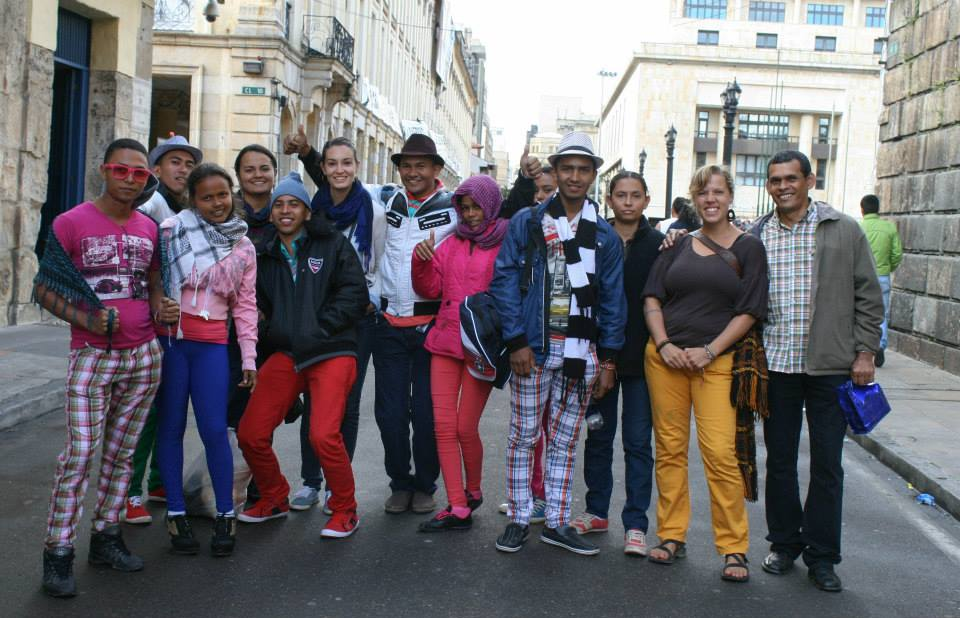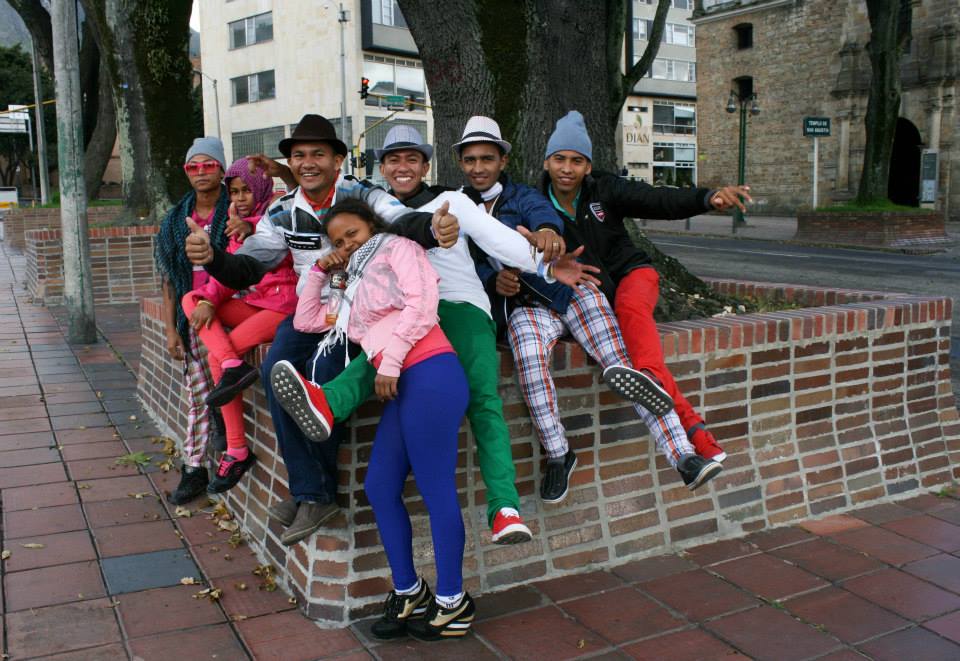A Fresh Vision
Saul's Transformation and Colourful Pants

One of my most memorable Sundays in Bogota was Colourful Pants Day. I had recently moved from the rural Caribbean coast to the bustling capital of eight million people, and I was finding the transition challenging. After the colour and energy of the coast, I found the capital to be dark, gloomy and overwhelming. Everyone seemed to be wearing black suits and be in a hurry. Instead of tropical sunshine, the mountainous city appeared rainy, cold, unfriendly and a bit scary.
I was, therefore, happy to join some young peacebuilders from the Montes de Maria region of Colombia, my former home, when they came to Bogota. The group was in the city to learn and share their own knowledge about peacebuilding with young people doing similar work in a very different urban context. Through their conversations and exchange, both groups expanded the way they saw the country and their work. While I wasn’t part of all the meetings, I got to join them in what we ended up calling Colourful Pants Day.
To bring some costal colour to the capital, we all wore our most colourful pants and descended on Bogota’s pedestrian avenue, the Septima, for a day of fun. Instead of seeing things around me as gloomy, I quickly caught the colourful-pants energy the group brought with them.
Instead of walking past the band playing live music on the street, we danced together. Instead of viewing the vendors with suspicion, we stopped and chatted and bought hats. We drank fruit tea and ate cheese-covered rice pudding at the iconic restaurants by the central plaza. Along the way, we talked about what the group had learned during their experiences and the lessons they were planning on bringing back to their work.

MCC Photo/Anna Vogt
The group left the city a couple days later, but their energy and enthusiasm stayed with me. I could see how my work connected with their work, and I could envision a new way to view and experience the city.
That day came to mind recently as I was reading the book of Acts and the story of Saul (later Paul). In the story of Saul’s transformation in Acts 9:1-29, Saul is blinded by a bright light telling him that his well-intentioned efforts to persecute Christians were wrong. However, Saul is unable to regain his sight until a few days later when he encounters Ananias, who was sent by God to restore Saul’s vision.
I used to see Saul’s transformation as taking place the instant he hears Jesus’ voice from heaven, right on the road to Damascus. Now I wonder if his transformation was actually in the moment when Ananias restored his sight and helped him make sense of the new world he was finally seeing. Perhaps it wasn’t simply the voice of Jesus that Saul needed; he needed a new community of faith, starting with Ananias, to help him learn a new way of being in the world.
I think this may be true for all of us. We all see the world in a slightly different and unique way. I needed Colourful Pants Day to see my city differently. Saul needed Ananias to help transform his vision and lead him into his new faith.
In fact, how can we ever expect to see an entire picture on our own? Each of us has a unique perspective, based on our culture, family and experiences. Like Saul, we might have the best intentions. But it often takes other people to help us see the impact of our actions and a different way forward.
Sometimes it's painful, like in the case of Saul. He had to wrestle with the impacts of his actions. That confrontation, however, allowed him to move in a different direction and become the Paul we know today.
Sometimes, learning to see differently is pure joy, like Colourful Pants Day in Bogota. And, in the end, allowing other people to help us see means that our vision of the world, and therefore our engagement, is deeper and more profound. That is something to celebrate and embrace!
So, my challenge for all of us, especially in moments of conflict or despair, is to use our sense of sight to centre the way we engage with respect and love. Instead of trying to see where someone else may be wrong, can we ask how the other person or group could help us see a fuller picture — of ourselves and the world around us? What could change, especially during conflict, if we approached difference as a chance to see the world more fully?
Let me know!
This blog originally appeared on the Peace is More Than a Wish page.
Questions for reflection:
- What role do you think Ananias played in Saul’s transformation? Have you had other people play a similar role in your life?
- What could Colourful Pants Day look like in situations you may be facing? Reach out to a friend or someone in your life to help you see a situation or an event differently.
- Your perspective also matters! Is there a space where you can share what you are seeing with someone else?

